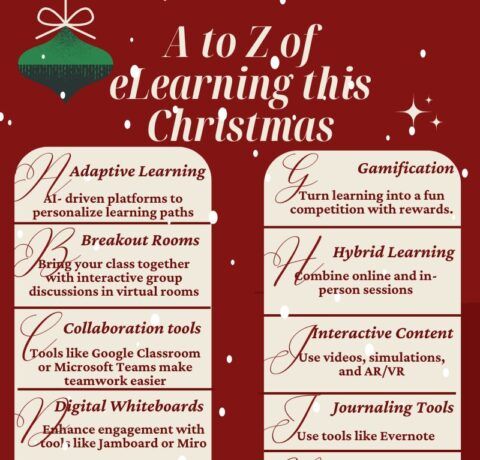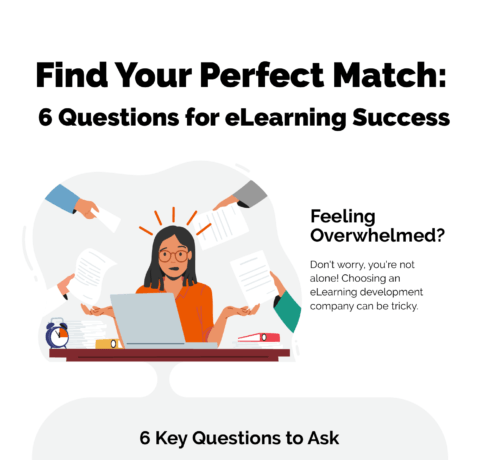The Top eLearning Statistics And Facts For 2015 Infographic
To find out more please visit: The Top eLearning Statistics and Facts For 2015 You Need To Know
Countless reports, surveys, and studies have shown that eLearning industry isn't showing any signs of slowing down. In fact, an increasing number of individuals, corporations, and institutions are turning to eLearning as they recognize its effectiveness and its convenience. Here are some important eLearning statistics and facts for 2015, some of which may even surprise you!
- The Global eLearning Industry Market.
The global eLearning Market is expected to reach $107 billion by 2015 [5]. The global self-paced eLearning market reached $32.1 billion in revenue in 2010 [3], with a five year compound annual growth rate of approximately 9.2%. This means that the self-paced eLearning market should see estimated revenues of $49.9 billion in 2015 [3]. - Top 10 Growth Rates By Country.
Growth rate shows how each country adopts eLearning and is a significant indicator since it can reveal revenue opportunities. The growth rate of self-paced eLearning by country is [3]:- India: 55%
- China: 52%
- Malaysia: 41%
- Romania: 38%
- Poland: 28%
- Czech Republic: 27%
- Brazil: 26%
- Indonesia: 25%
- Columbia: 20%
- Ukraine: 20%
- Learning Management System Market.
The LMS market was worth $2.55 billion in 2013 with an estimated compound annual growth rate of approximately 25.2% [2]. In other words, the LMS market is expected to worth approximately $4 billion in 2015 and over $7 billion in 2018. The highest proportion of revenue contribution is expected to be generated in North America. - Mobile Learning Market.
The worldwide market for Mobile Learning products and services reached $5.3 billion in 2012 [7]. With a compound annual growth rate of 18.2% for the next five years, it is estimated that the worldwide mobile learning market in 2015 will reach $8.7 billion and it will even reach $12.2 billion by 2017. It is worth to note that while in 2012 the top buyers of mobile learning products and services where US, Japan, South Korea, China, and India, it is expected that by 2017 the top buyers of mobile learning products and services will be China, US, Indonesia, India, and Brazil. - MOOCs in Corporate Training.
Currently 8% of companies use MOOCs, while another 7% consider to experiment with MOOCs. It is predicted that in the following two years this percentage will rise to 28% [4].
Examples:- more than 350 companies cooperate with Coursera and Udacity to identify the best students that would probably make the best possible candidates for relevant jobs [8].
- Google has already enrolled 80,000 of its employees in Udacity’s HTML5 course [8].
- Online Corporate Training.
The online corporate market is expected to grow by 13% per year up to 2017. Today, 77% of USA companies offer online corporate training to improve the professional development of their employees [9]. - eLearning Top Buyers.
Large companies are the main purchasers of eLearning products and services. As a matter of fact, these companies make up roughly 30% of all eLearning buyers [1]. - Corporate Training Delivery Methods.
The training delivery methods for 2014 were as follows [6]:- 47% of training hours were delivered by instructor led classroom only setting- increased by 3% as compared to previous year
- 29.1% of training hours were delivered with blended learning methods- increased by 0.8 as compared to previous year
- 28.5% of training hours were delivered via online or computer based technologies (no- instructor)- increased by 2.6% as compared to previous year
- 15% of training hours were delivered via virtual classroom/ webcast only (instructor from remote location)- decreased by 1% as compared to previous year
- 4.2% of training hours were delivered via social learning- increased by 0.9% as compared to previous year
- 1.4% of training hours were delivered via mobile devices- decreased by 0.5 as compared to previous year.
- Learning Technologies
The learning technologies used for 2014 were as follows [6]:- 74% of companies currently use Learning management systems (LMS) and Virtual classroom/ webcasting/ video broadcasting
- 48% of companies currently use Rapid eLearning Tool (ppt conversion tool)
- 33% of companies currently use Application simulation tool
- 25% of companies currently use Learning Content Management System
- 21% of companies currently use Online performance support or knowledge management system
- 18% of companies currently use Mobile Applications
- 11% of companies currently use Podcasting.
- Demand of eLearning Software And Services in 2015.
The following statistics present what the small, mid-sized and large companies intend to purchase in 2015, based on the 2014 Training Industry Report [6].- 44% of companies intent to purchase online learning tools and systems
- 41% of companies intent to purchase Learning Management Systems (LMSs)
- 37% of companies intent to purchase authoring tools/systems
- 33% of companies intent to purchase classroom tools and systems
- 29% of companies intent to purchase content development products and services
- 27% of companies intent to purchase courseware design and presentation tools and software
- 18% of companies intent to purchase audio and web conferencing products and systems.
Do you believe that it is high time to become an eLearning professional? Read the Free eBook How To Become an eLearning Professional which is filled with the knowledge, wisdom, experience, and inspiration of carefully selected eLearning professionals.







You can adjust your cookie preferences here.